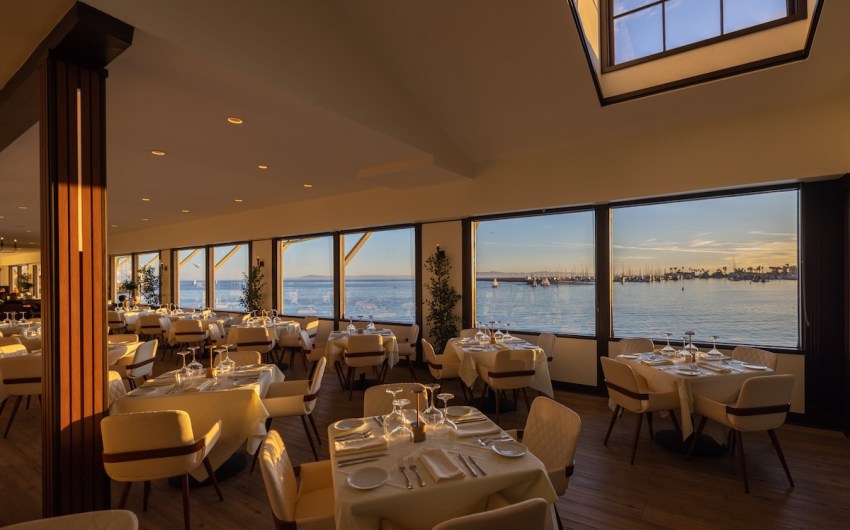California Congressmembers Look to Build off Santa Barbara Channel’s Blue Whales and Blue Skies Program
Reps. Carbajal and Huffman Introduce Bill to Protect Marine Life and Cut Air Pollution Across Entire Pacific Coast

California congressmembers are working to turn down the volume and clear the air across the entire Pacific Coast.
Last week, representatives Salud Carbajal and Jared Huffman introduced a bill for a new federal program to encourage shipping companies to voluntarily reduce their speeds to protect marine life and cut air pollution.
It builds off the regional Protecting Blue Whales and Blue Skies program, which started in the Santa Barbara Channel 10 years ago by establishing speed reduction zones and giving recognition to participating shipping companies.
The large volume of ships that pass through the channel increase noise pollution — making the channel about 30 times louder than it was pre–industrial revolution, according to a recent study in the Marine Pollution Bulletin — which makes it harder for marine life, especially whales, to navigate their environment.
Traveling at high speeds not only turns up the volume underwater but also increases the risk of fatal ship strikes on whales and pollutes the air.
However, by slowing down, ships can cut greenhouse-gas emissions, lower noise levels, and help prevent whale strikes.
In 2023, 33 global shipping companies participated in the regional program, collectively traveling about 375,000 nautical miles at 10 knots or slower within the speed reduction zones along the Southern California coast and in areas of the San Francisco and Monterey Bay region.
Ships in the qualifying performance tiers had sound levels that were 5.4 decibels per transit lower when compared to 2016 baseline source levels, the organization reported, and “with a reduction in noise pollution, whales can likely communicate easier.”
The 10-year-old California program would serve as the model for the qualifications and the recognition to be provided by National Oceanic and Atmospheric Administration (NOAA) to participating shipping companies through the new federal program.
“California’s coastlines and channels have been made safer and cleaner through a decade of the Protecting Blue Whales Blue Skies program, and it is time long past time to build on this regional success with the resources and recognition of our federal government,” said Rep. Carbajal.
“The Blue Whales Blue Skies legislation I’m proposing will give shipping companies up and down the Pacific Coast another reason to consider more than their bottom line when determining their vessels’ speeds. And when we consider the success that the regional program has had, especially in recent years, I am confident this bill will help us protect ocean life and our air quality across the West Coast.”
The new bill is the latest legislative action to expand the program, following other recent efforts by Santa Barbara Assemblymember Gregg Hart to spread it across the entire California Coast.
Called the Alan S. Lowenthal Blue Whales, Blue Skies Act, the bill honors the retired California Congressmember who had previously championed legislation to create federal recognition for speed reduction off California’s coastline.
The Environmental Defense Center (EDC), alongside other conservation-focused nonprofits, has supported the program in the Channel since 2007, when five endangered blue whales were killed by ship strikes, according to Chief Counsel Linda Krop.
“The vessel speed reduction program has provided significant benefits to whales and air quality, and this legislation builds on its success by recognizing shipping companies for doing the right thing,” Krop said.
The regional program is run by a partnership of public and nonprofit entities including the Santa Barbara County Air Pollution Control District, San Luis Obispo County Air Pollution Control District, Ventura County Air Pollution Control District, National Marine Sanctuary Foundation, and others.
More information on the Blue Whale Blue Skies Program can be found here. The text of the Alan S. Lowenthal Blue Whale Blue Skies Act can be found here.







